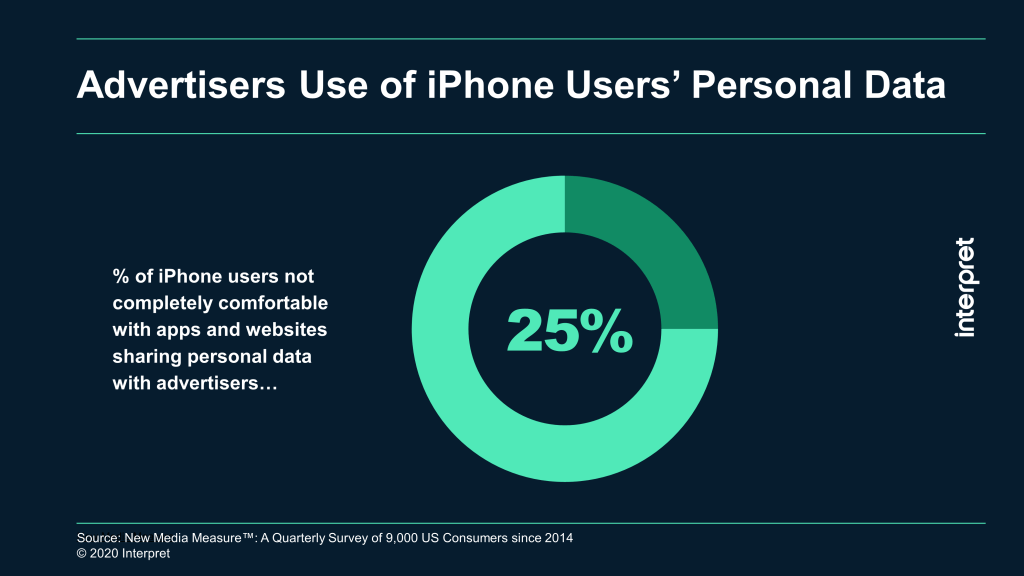At Apple’s annual WWDC event, the company outlined some significant changes that will roll out with its next iPhone operating system update, iOS 14, later this year. For advertising executives, there is one major change that likely set off alarm bells: Apple is about to make its Identifier for Advertisers (IDFA) opt-in on an app-by-app basis.
IDFA is typically used by advertisers to track aggregate user data without revealing a person’s identifiable information. While users are likely to appreciate the enhanced privacy controls from a company that has a good track record on protecting personal user data, as Forbes put it, “crippling” IDFA effectively “sends an $80 billion industry into upheaval.”
Former Rovio VP and current mobile consultant Eric Seufert commented to Forbes, “It’s impossible to overstate how impactful this change is: almost every large mobile-first business is completely dependent on performance marketing on mobile for revenue growth. Mobile app developers across every vertical are now scrambling to come up with a strategy for continuing operations as iOS 14 rolls out.”
This could have a knock-on effect on both Facebook and the Google Ads business, although the former is suffering from its own advertiser boycott conundrum, so this is certainly not Facebook’s biggest concern. At the same time, Apple’s been developing its own privacy-safe framework for mobile called SKAdNetwork, meaning that Tim Cook’s company is seeking to grab its own share of the advertising pie controlled largely by Google and Facebook.
You might think Apple is reacting to growing privacy concerns from its own user base, but according to Interpret’s quarterly New Media Measure® survey, fewer than a quarter of iPhone owners completely agreed with the sentiment, “You are not comfortable with websites and mobile apps sharing information about you with advertisers.” That said, a quarter of nearly 1 billion iPhone users worldwide is not an audience to be ignored.






